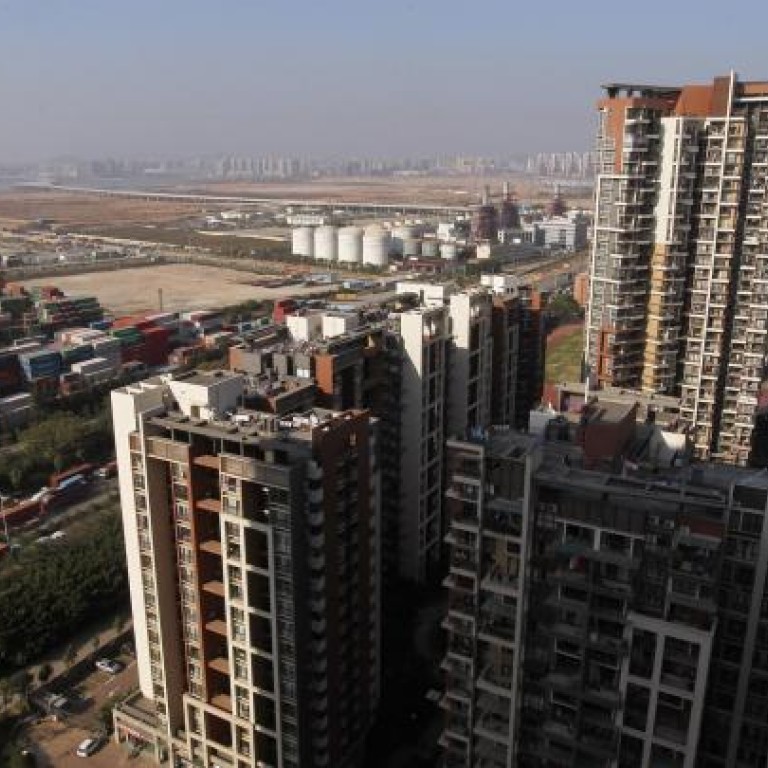
Qianhai a potential investment alternative to Hong Kong
The zone near Shenzhen can provide the kind of low tax regime, strong infrastructure and gateway to the mainland that companies want
Despite signs of increased activity in the office market leading up to the Lunar New Year break, occupier demand in Hong Kong remains rather subdued.
Indeed, levels of net absorption, which measures the change in volume of occupied space, and therefore expansion and contraction, are running at around half the long-term average. This is unsurprising given the economic turbulence.
However, despite the lack of movement, vacancy rates continue to trend downwards and are below 3 per cent for the market as a whole.
Given that office markets worldwide generally require a level of vacancy of 6-8 per cent, the situation obviously remains extremely tight for occupiers.
It is almost six months since CBRE published a report on , which highlighted the potential shortfall in office space over the next decade, and also set out proposals to alleviate this shortage. Chief among these was the recommendation to fast-track selected sites, which we saw as being the "easy-wins" for the government and the market.
These sites are attractive in size and location, and in our view, form a "can do" list rather than a "wish list" of actions. We therefore welcome the announcement in the recent budget that these sites are to be included in the 2013/2014 land sales programmes.
Despite these positive moves, the government also saw fit to increase the stamp duty on commercial property. While the intention obviously is to remove more speculative elements from the market it is unfortunate that long-term investors, who essentially are betting in favour of Hong Kong's long-term prospects, are also hit.
Once again it seems to be a case of one step forward and two steps backwards. Given the shortage of available office space, we have also seen a number of occupiers squeezed out of the leasing market and into the investment market. Whereas there are exemptions for owner occupiers in the residential market, no such provision exists for commercial property.
What message does this send to international corporations seeking to invest in Hong Kong? If these measures were to continue longer term, this would damage Hong Kong's credibility as a low-tax, free-market environment and encourage occupiers to consider other options. Singapore is a location often touted as an alternative to Hong Kong's high prices and lack of supply. Rents are close to half the level of Hong Kong and there is an abundance of high quality, grade-A space available.
However, we have not seen a significant movement from Hong Kong to Singapore, in part because of the enviable location Hong Kong enjoys as a gateway to, and springboard from, mainland China. So what could compete with this powerful mix of low taxes, world-class business infrastructure and strategic location?
Qianhai perhaps?
The mainland has a strong track record of developing major projects once there is political support, and Qianhai has generated a significant amount of coverage in Hong Kong in recent months. The market has begun to realise that it is going ahead and that it will become a reality.
A number of trade missions have also been carried out by official bodies from Hong Kong, together with various chambers of commerce. Moreover, a research study carried out by CBRE suggests that, rather than being a distant proposal, it could provide 120 million square foot of grade-A office space on our doorstep over the next 10 years.
Not only does this dwarf the expected new supply in Hong Kong of less than 10 million sq ft over the same period, but it is almost double the existing grade-A office stock in Hong Kong.
The aim of the Qianhai project is to appeal specifically to the service sector, with the financial sector at its core. Positioned as the onshore yuan-clearing centre, Qianhai is set to play a strategic role in China's ambition for yuan internationalisation. Other sectors that Qianhai hopes to attract include logistics, information services and technology services.
In order to prove attractive, relevant authorities have proposed an advantageous tax structure for eligible corporations in key sectors and skilled employees. Corporate income tax is to be set at a reduced rate of 15 per cent, while employees will have a tax base equivalent to that in their home territory.
As such, Hong Kong residents may continue to enjoy Hong Kong's low tax base should they relocate to work in Qianhai.
A range of other measures and exemptions are also applicable to certain sectors and businesses. For example, certified professionals in certain sectors who receive their qualifications in Hong Kong will be permitted to provide professional services within Qianhai, with specific measures aimed at professionals from the accounting sector.
Qianhai has been touted as a cornerstone of Guangdong-Hong Kong co-operation, so it may seem odd to mention the project as an alternative to Hong Kong. However, for now it can be viewed as such, but without any negative connotation.
Indeed, it could potentially act to release some of the pressure in Hong Kong and make it more attractive for occupiers by facilitating higher vacancy rates and lower rental levels.
All of this is of course speculation as specific details on Qianhai have yet to be released. As such, it is too early for occupiers to consider the area in relation to their occupational strategy.
The devil is in the detail, and further details are required regarding issues such as the freedom of capital movements and the basis for rule of law. We expect these issues will be addressed going forward but until such time Qianhai will remain an enticing, yet somewhat intangible, option for occupiers.
Edward Farrelly is Director of Research Hong Kong, Macau & Taiwan, for CBRE.

